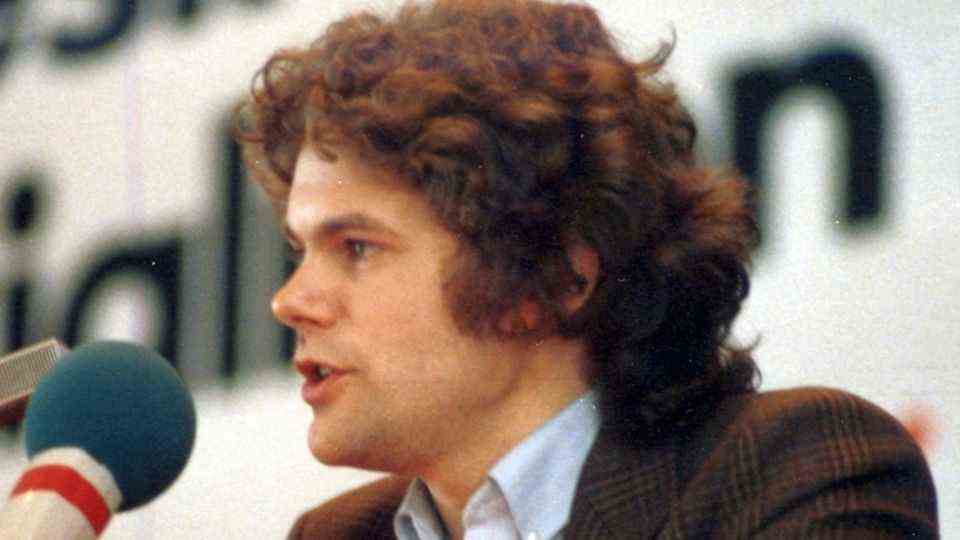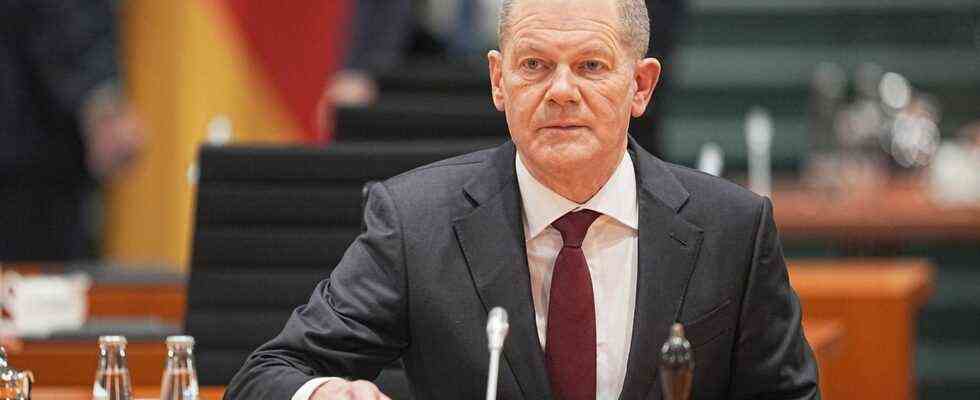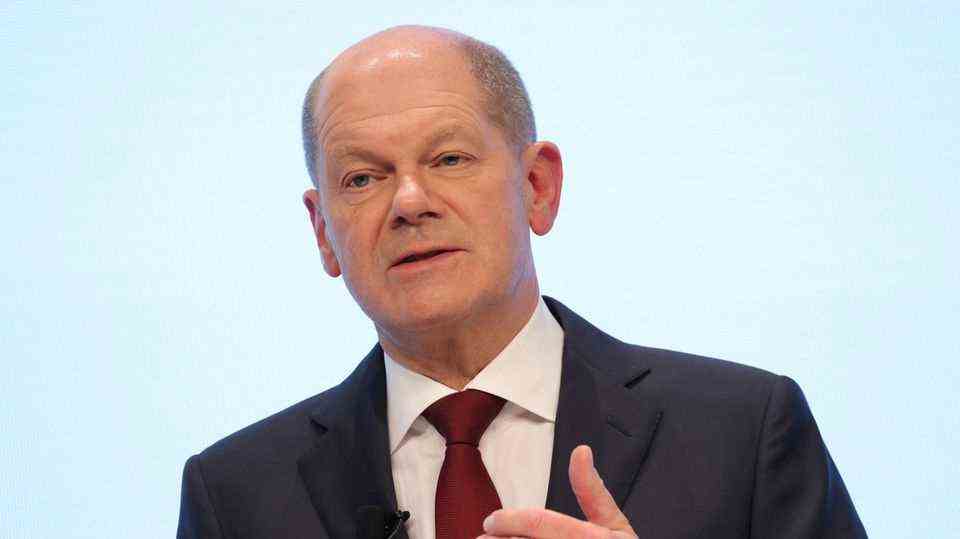The new government is sworn in. The German media write that Chancellor Olaf Scholz is facing major problems. And these not only affect the corona pandemic, but also the traffic lights – and Eastern Germany.
After 16 years Chancellor Angela Merkel (CDU) is now Olaf Scholz (SPD) the new head of government. Despite the corona pandemic, many German media see potential problems in the three-party coalition made up of the SPD, Greens and FDP, from which Scholz did not get all the votes when he was elected Chancellor. But many want to give the new federal government time to work first.
“Badische Zeitung” (Freiburg):
“Scholz has to tackle the challenges with a coalition that has never existed in the federal government. As much as its partners conjure up the spirit of new beginnings: Whether their similarities last longer has to be seen. It is clear that Scholz can only be successful if if he also admits successes to every political color of his traffic light. Because this is unlikely to go off without tension in the different profiles of the Greens and FDP, discipline and loyalty in one’s own ranks become a particularly urgent virtue. Scholz has this requirement when putting together his cabinet – With the exception of Lauterbach’s personalities – more thoroughly taken into account than any idea of proportional representation. Scholz wants to rule. And as head of government he does not want to remain an episode. “
“Frankfurter Allgemeine Zeitung”:
“Before the man who led the SPD out of the bondage of the grand coalition and the ‘crap’ of the opposition, even those who did not want him as party chairman and only let him run for chancellor because they saw it as hopeless are bowing How long will the effect of the miracle last? Despite the harmony and the spirit of optimism (…) Scholz was already missing at least 15 votes in the election for Chancellor. Kühnert claims that the dissenters did not come from the ranks of the SPD. But he cannot prove it. And Even a lack of support from the FDP and the Greens would raise the question on day one of how close this coalition is to its Chancellor. But that will depend on whether Scholz can ‘achieve something great’, as he attested to his predecessor. (…) “
“Frankfurter Rundschau”:
“Anyone who believes that real capitalism can cope with the problems of our time if we just connect it to a new power source, so to speak, will happily and confidently take note of the traffic light coalition’s promise of progress. But those who believe with good reason that also the system itself needs a profound transformation to deserve the name “ecological-social” shouldn’t expect too much from this government. Progress, it is said, is a snail. The trouble is, creeping is not the pace with which the necessary changes can be achieved. “
“New Osnabrück Newspaper”:
“The question of how Scholz will lead the country through the pandemic is crucial for the success of the first traffic light government and its further projects. In addition, the traffic light government may have planned too much. It wants the transformation to a climate-neutral country , which is advancing digitization, maintaining and expanding its welfare state. It is unclear whether and how the major projects should be financed. When the coalition agreement was signed, Scholz, Green leader Robert Habeck and FDP leader Christian Lindner were already rather tight-lipped. A first sign of disillusionment? Maybe. But let’s get started first. “
“Leipziger Volkszeitung”:
“Scholz has promised to explain politics. He should start on day one. This is urgently needed in this accelerated time burdened by hatred, agitation and misinformation and a cornerstone of trust – the most important capital in politics, as is well known. Scholz is missing not in self-confidence or striving for power, as his slogan 2021 proves, also to want to win the election in 2025. That does not sound like humility in front of the office. His real leadership strength will only become apparent when what is not in the coalition agreement occurs: the next crisis. Then he will be measured against Merkel and then it will turn out how much this democracy lives from change. “

“Mittelbayerische Zeitung” (Regensburg):
“The fact that there are no ministers from Bavaria at Scholz’s cabinet table, but at least a handful of state secretary posts come from the Free State, has to do with the fact that he does not take regional proportional representation very seriously should feel neglected by the new government in Bavaria. But Scholz knows from experience that he needs the vote of Bavaria and the Union in the Federal Council for many traffic light projects.
Nordkurier (Neubrandenburg):
“The East German Merkel left a major construction site for her successors: the CDU Chancellor did not resist the fact that growing sections of the East German population no longer feel represented by power. This has given the SPD a huge increase in votes in Mecklenburg-Western Pomerania and Brandenburg , an obligation for the SPD man Scholz. Can the traffic light deliver? There are undoubtedly points in the coalition agreement that are useful in the East, such as the higher minimum wage of 12 euros per hour or the plan to fill more management positions with East Germans in the future , or plugging dead spots. But money is not everything. As long as the East Germans have the impression that they are only serving as accessories for an illusion show devised by West German heads, the frustrations persist. “
“Rhein Zeitung” (Koblenz):
“Olaf Scholz was not even in office, when he was able to read rows and rows of papers about himself and the traffic light coalition he led, which were sometimes difficult to bear in their senior teacher status. Sure, he has to deliver now. But who says he doesn’t Can and will? The start was professional: it stayed on schedule, noiseless compromises were made, the contract was ready. Against the silly Merkel intrigues of 2017, which brought us as a dysfunctional government stagnation and mismanagement for four years, it was definitely a decisive one Improvement.”
“Süddeutsche Zeitung” (Munich):
“But that is exactly what the SPD, Greens and FDP are now striving for – big change with announcement. They do not want to be the ones who only react to crises (although that is exactly what they have to do with Corona now), but to shape the country. The last government The one who had such an ambitious plan was – more than 50 years ago – Willy Brandt’s social-liberal plan. Olaf Scholz therefore had the coalition agreement signed on Tuesday, signed on Tuesday, overwritten with ‘Dare to make more progress’. It is an echo of Brandt’s famous government declaration in 1969 under the motto ‘Dare more democracy’. “
“Stuttgarter Zeitung”:
“Even for Scholz, the dream of his predecessor, who wanted to be able to ‘rule through’, will not come true. In his case, the balance of power in the Federal Council already stands in the way of this. After all, the Union remains involved in ten state governments for the time being – but this is changing The traffic light alliance is also a construct that contains so many political contradictions that centrifugal forces can be expected that could throw it out of its now seemingly harmonious balance. “
“People’s Voice” (Magdeburg):
“We have a new Chancellor, but everything could stay as it is. The coalition agreement largely allows this. Only a tiny amount of funding from the FDP would be added to the pension. The digitization that Angela Merkel promised in every legislative period, in the end no longer needs the state. New technologies realize them. Climate protection remains within the scope of the constitutional court order, even if the Greens – if possible – wanted to get out of coal earlier. With the current development, a minimum wage of twelve euros would be in four years anyway The inflation is accelerating it. The EU sets limits in agricultural policy, Mr. Lindner on expenditure. As in the Merkel era, the real challenges are probably beyond a coalition agreement: the pandemic, Russia’s aggression, a new wave of refugees, inflation. Everything remains different.”
“World” (Berlin):
“Olaf Scholz is facing major challenges, just like his predecessor in office. Unlike Merkel in 2005, however, he does not begin his term of office with a power- and coalition-driven turning away from everything he advocated in the election campaign. He has the mandate to shape things And because that is so, it requires strong opposition. After the celebration and the fine words, the political struggle begins again. The fact that this is guaranteed, and from now on, is another reason to live happily in this country and to be proud to be on the utterly unlikely fact that Germany, of all people, shows the world how democracy works. Sober. Everyday. Breathtaking. “
Further sources: “Sueddeutsche.de”, “Welt.de”.


